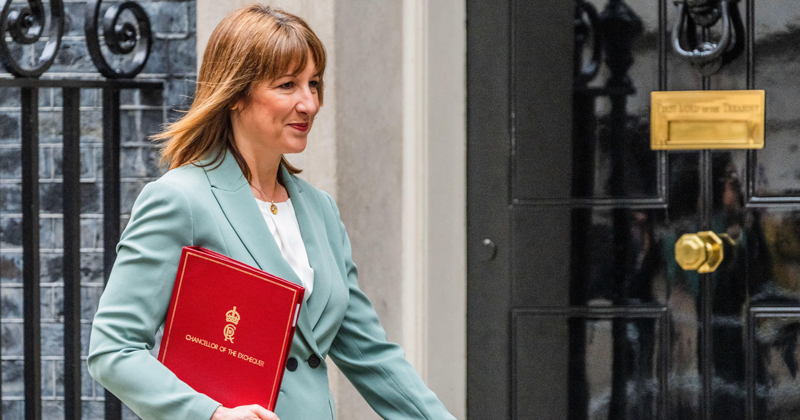Per-pupil funding will rise by around 1 per cent in real terms each year, the spending review has confirmed.
Chancellor Rachel Reeves told Parliament that “overall, I am providing a cash uplift of over £4.5 billion a year for additional funding in the core schools budget by the end of the spending review”.
Spending review documents published by the Treasury confirm the core schools budget will rise by £4.7 billion between 2025 and 2028.
However, this equates to £2 billion in real terms, which accounts for anticipated rises in schools’ costs, or around 1.1 per cent extra per pupil.
Once funding for the recently announced extension of free school meals is excluded, “the core schools budget will grow by an average of 0.9 per cent per pupil in real terms each year”, the documents add.
Reeves said today the government was “backing our teachers and backing our kids”.
It comes as schools face massive financial pressures.
Capital spending and Ofsted budget boost
Documents also show the government will spend around £2.4 billion a year for the next four years on the school rebuilding programme, and £2.3 billion a year by 2029-30 on improving the condition of the school estate.
Reeves also announced £370 million for school-based nurseries, £130 million for facilities for young people to participate in music, sport and drama and for “libraries in our schools”.
Plus Ofsted has got a £20 million funding boost to help staff inspections under its new report card plans.
Emma Balchin, chief executive of the National Governance Association, said the sector’s “collective voice has been heard, and at least some progress will be made to rectifying previous injustices of seeing school funding fall in real terms over many years.
“NGA is genuinely delighted that in an era where every pound is scrutinised and competing demands are fierce, education has been recognised as the priority it should always be.”
However, she said it was a “vital first step, not the finish line”.
“While today brings much-needed breathing space and the precious gift of certainty for planning ahead, school boards will still face tough choices. The financial pressures that have built up over years won’t disappear overnight.”

Natalie Perera, chief executive of the Education Policy Institute, warned that “given that the overall budget is rising by £4.7 billion in cash terms only by 2028-29, once inflation is considered, this increase leaves less flexibility for schools than they might have hoped”.
“Although we will see some savings over the next three years as a result of falling pupil numbers, much of this funding has already been earmarked for existing commitments – such as the recent announcements of the teacher pay award, and the extended entitlement to free school meals.”















Your thoughts